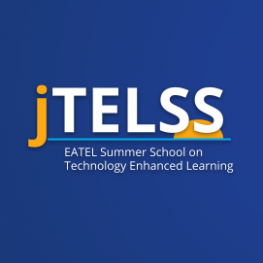Speakers
Ayse Saliha Sunar
Bitlis Eren University, TurkeyMaka Eradze
University of L’Aquila, ItalyManuel León
University of Southampton, United KingdomStart
23/05/2022 - 16:00
End
23/05/2022 - 17:30
Design of a community based online training resources
Monday 23/05 16:00-17:30h
Main Hall
Abstract
The workshop will be implemented in an interactive way where the participants will be informed on the pedagogical and theoretical background such as faculty development framework for digital education framework, building a professional community, design of online/hybrid/technology-enhanced lectures. Based on an example of a European project, the workshop will discuss a digital hub under development and will have a chance to discuss design ideas such as an academic hub for training and networking.
Needs Analysis
In some cases, PhD students either research theoretical aspects or with a tool that is already developed that they cannot influence the design or develop an educational tool where the pedagogical design of the tool is often neglected if it is not the main goal of their research. With this workshop, the students will benefit from mainly three things:
- They will see an actual implementation focusing on design fed by a research-based pedagogical framework to train academic personnels, as a real case of practice in a European project.
- If they work on the theory of technology-enhanced learning or research with already developed tools/ already collected data, they will have a chance to apply their knowledge and experience to improve a design.
- If they work on the design, they will be able to get feedback from other participants and reflect the discussions that occurred in the workshop to their research. They will also get a chance to reflect their knowledge and experience to a design project which will be in a different context than their research.
Learning Objectives
Participants will:
- Learn design principles based on a real case and existing research-based framework;
- Explain the principles of a community of practice;
- Experience in training of professionals as learners and its special requirements;
- Challenge to reflect their experience to improve an existing product which has boundaries that need to balance between needs and requirements.
Pre-activities
Nothing is necessary. However these two activities would be very beneficial to have richer discussions and deeper learning.
- Critically evaluating the tools they have been using for educational purposes and thinking about why that certain functionality might be challenging and how to improve it.
- Interacting with the digital hub and generating ideas about the website used as an example material in the workshop.
Session Description
- 5 mins: Getting to know each other (participants and instructors)
- 15 mins (background information): Theoretical information about digital pedagogy and BRIDGES project, theoretical information about communities of practice
- 10 mins: Open discussion for what was good and what was bad during emergency remote education during pandemic, especially tools and their usage in context (everyone reflects their personal experience)
- 5 mins: showing the (half-developed) BRIDGES digital hub for academics
- 10 mins break
- 5 minutes: explanation of the group study and building the heterogeneous groups by their expertise area, 4-5 people is ideal for the groups size
- 25 mins group study: Design a specific functionality (mock-up) for training professionals on a digital hub AND/OR for professionals to share resources and best practices. Based on the vision and expertise of the group participants. Sky’s the limit
- 10 mins: Groups will explain their design with the rationale
- 5 mins: Wrap up the session
Post-activities
The people who are interested can follow our project’s website and social media accounts to follow how the progress in the digital hub is and the scientific contributions such as publications.



